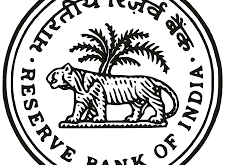50% Gastroparesis May Go Unnoticed in Women and Diabetes Patients
Many people mistake the early symptoms of gastroparesis, like bloating and nausea, for common digestive issues. But for those living with diabetes, it could signal a more serious gut motility disorder
Pune : August marks Gastroparesis Awareness Month. It is important to raise awareness about this lesser-known digestive disorder that affects many but goes undiagnosed. Gastroparesis, or delayed stomach emptying, can severely impact quality of life by causing constant bloating, nausea, early fullness, and nutritional deficiencies. These symptoms are neglected by labeling them as acidity or indigestion, especially among women and ones with diabetes, making it important to understand the condition and seek timely medical help. Timely attention is key to managing this condition.
Gastroparesis happens when the muscles of the stomach do not function properly, slowing or stopping the movement of food into the small intestine. This delay in gastric emptying disrupts digestion, causes discomfort, and can lead to malnutrition and unstable blood sugar levels. The causes of it are uncontrolled diabetes, surgeries affecting the vagus nerve, and certain medications. The symptoms seen are nausea and vomiting, stomach pain, weight loss, feeling full eating only a small amount of food, and poor appetite. Many people confuse these symptoms with digestive problems, leading to delayed diagnosis and management.
Dr Dr Vishal Sheth, Gastroenterology, Apollo Spectra Pune said, “50% Gastroparesis cases in women and diabetics often go undiagnosed for years because their symptoms overlap with digestive complaints like acidity or gas. It is challenging to detect in women and diabetic patients, where hormonal changes or poor sugar control can worsen the condition. Awareness is important because early diagnosis can prevent long-term complications.”
Dr Sheth, added, “There is a strong connection between poorly controlled diabetes and gastroparesis. High blood sugar levels can damage the nerves that control stomach muscles, leading to delayed emptying. Unfortunately, gastroparesis makes it harder to manage diabetes, and uncontrolled sugar worsens gut function. Managing blood glucose properly is one of the most important ways to protect gut health. There is no permanent cure for gastroparesis, but symptoms can be managed with a combination of diet changes, medications, and better blood sugar control. It is recommended to eat small, frequent meals, avoid high-fat and high-fiber foods, and take medication as prescribed by the doctor. Better sugar control in the form of medication helps protect the nerves that support stomach movement and digestion. In diabetes patients, managing blood glucose by taking timely tests can ease symptoms of gastroparesis and improve gut function. Check blood sugar regularly, and you will surely be able to stay healthy and manage gastroparesis.”
Dr. Raosaheb Rathod, Consultant Gastroenterologist, Hepatologist & Therapeutic Endoscopist, Medicover Hospitals, Kharghar, Navi Mumbai Said, Gastroparesis condition can overlap with everyday gastrointestinal issues such as bloating, nausea. Women may also ignore these signs attributed to periods. Those having diabetes should stay vigilant, as their symptoms can mimic those of gastroparesis. The common signs of gastroparesis are nausea, vomiting, abdominal pain, and feeling full quickly after eating. Having gastroparesis will make it challenging for the patient to manage diabetes. Everyone must take utmost care, women should report symptoms to the doctor without any delay, and those with diabetes should keep their sugar levels in check and prevent this condition from worsening further.
 Newspatrolling.com News cum Content Syndication Portal Online
Newspatrolling.com News cum Content Syndication Portal Online






